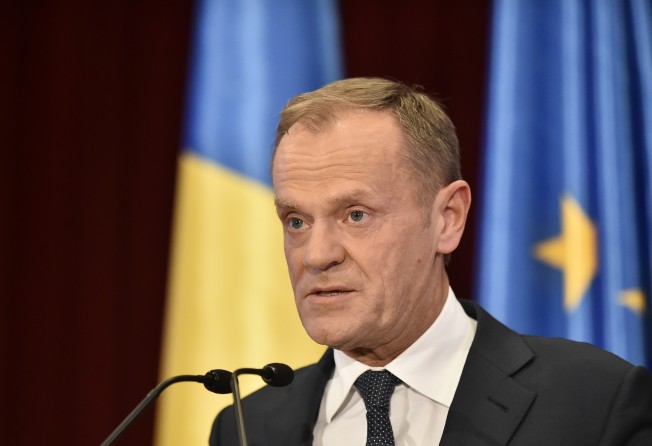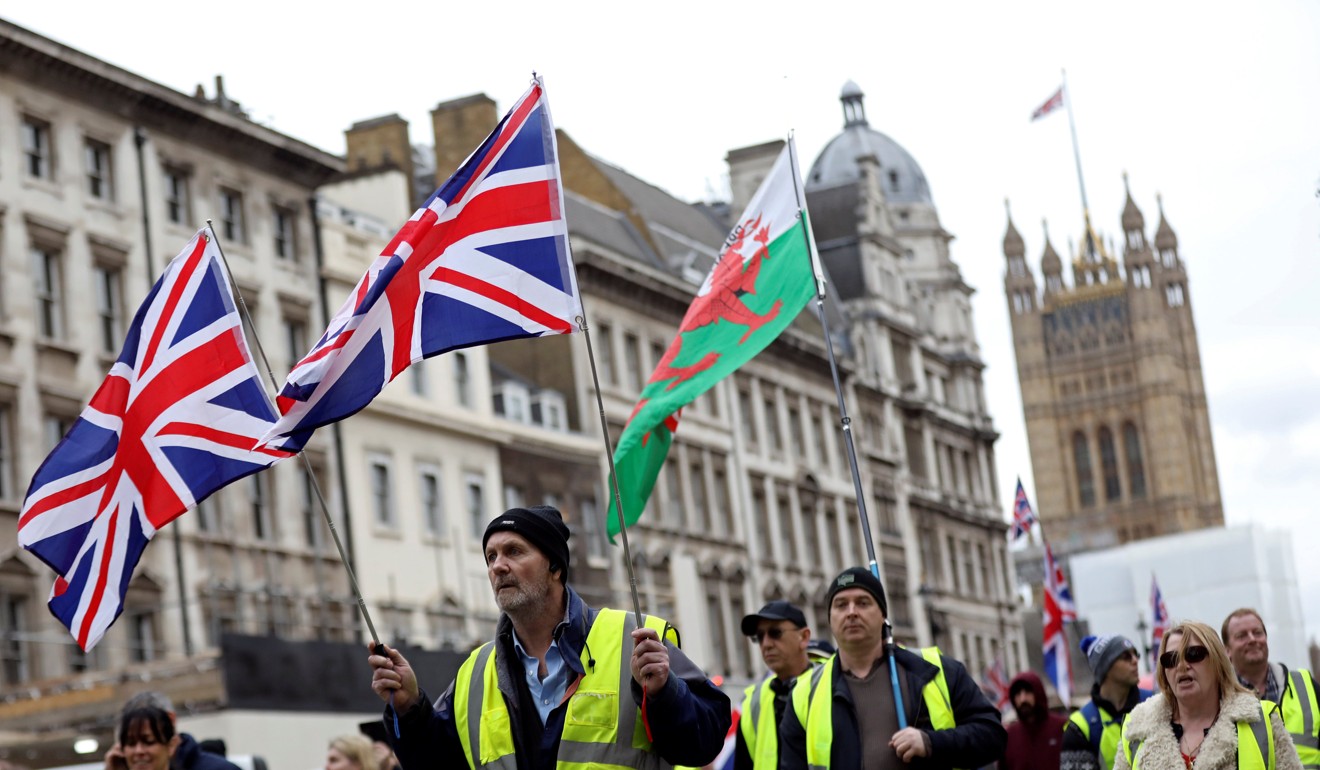
EU preparing to delay Brexit until at least July
- Brussels sees Britain’s March 29 deadline as highly unlikely to be met

The EU is preparing to delay Brexit until at least July after concluding that Theresa May is doomed to fail in getting her deal through parliament.
The country’s March 29 deadline for exiting the EU is now regarded by Brussels as highly unlikely to be met given the domestic opposition facing the prime minister and it is expecting a request from London to extend article 50 in the coming weeks.
A special leaders’ summit to push back Brexit day is expected to be convened by the European council president, Donald Tusk, once a UK request is received. EU officials said the length of the prolongation of the negotiating period allowed under article 50 would be determined based on the reason put forward by May for the delay.
A “technical” extension until July is a probable first step to give May extra time to revise and ratify the current deal once Downing Street has a clear idea as to what will command a majority in the Commons.
An EU official said: “Should the prime minister survive and inform us that she needs more time to win round parliament to a deal, a technical extension up to July will be offered.”

Senior EU sources said that a further, lengthier extension could be offered at a later date should a general election or second referendum be called although the upcoming May elections for the European parliament would create complications.
One EU diplomat said: “The first session of the parliament is in July. You would need UK MEPs there if the country is still a member state. But things are not black and white in the European Union.”
The European Commission will publish a letter on Monday giving fresh assurances on the temporary status of the Irish backstop in a hope to win over some MPs to the deal but EU officials are downplaying expectations.
The heads of state and government said at a recent summit that the withdrawal agreement, and the contentious backstop that a large number of Tory MPs fear will trap the UK in a permanent customs union, could be neither altered nor reinterpreted.
But officials said Brussels would be in listening mode, and take guidance from the prime minister as to the next steps should she suffer a heavy defeat as is widely expected.
May has to give parliament a statement on her next move within three parliamentary working days of the vote. EU officials believe that whatever emerges will likely require a prolongation of the two-year negotiating period.
That conclusion is shared in a forecast by the Economist Intelligence Unit (EIU), a leading risk analyst, which will be published on Monday.
Danielle Haralambous, a UK analyst at the EIU, said: “Time is simply running out, and we’re at a stage where Brexit can probably only happen in late March now in the unlikely event that parliament approves Mrs May’s deal on 15 January, or if parliament supports leaving without a deal. For all other options, the government will need to buy more time, and we think the EU will be willing to provide it to avoid a cliff-edge situation.”
On Sunday, the Brexit secretary, Stephen Barclay, insisted there had been “some movement” by MPs in favour of May’s deal while suggesting the prime minister would take guidance from parliament on what MPs could support should it fail.
“The country does have a right to know what members of parliament are for, not just what they are against, and it’s important that the house comes to a view as to what it can back,” Barclay said.
EU officials were quick to deny reports this week that discussions about extending article 50 had already begun with the UK. “The Brits have certainly not talked about this recently,” said one official. “If anything it is the last thing they want to talk about.”
It has been suggested that the EU would respond generously, and even renegotiate the terms of the withdrawal agreement, should May pivot towards a permanent customs union in order to get her deal through parliament.

One official said the refusal of EU leaders at a December summit to give May a 2021 deadline for the end of talks on a future trade deal was grounded in a belief that she had yet to offer a compelling vision that could get through parliament.
“The leaders are much more savvy than people think – they can see what is happening in the UK, and they were left unconvinced that it would be possible to get a trade deal done quickly because the British government remains opaque on what it wants.”
Mujtaba Rahman, a former Treasury and commission official, and head of Europe for the Eurasia Group risk consultancy, said: “We think the EU will be willing to go back into the withdrawal agreement and rethink the backstop if the UK can reach a credible position that leaders believe will land an orderly withdrawal.
“If the UK position were, for example, to evolve towards a permanent customs union, that could alter the dynamic of thinking around the backstop.”